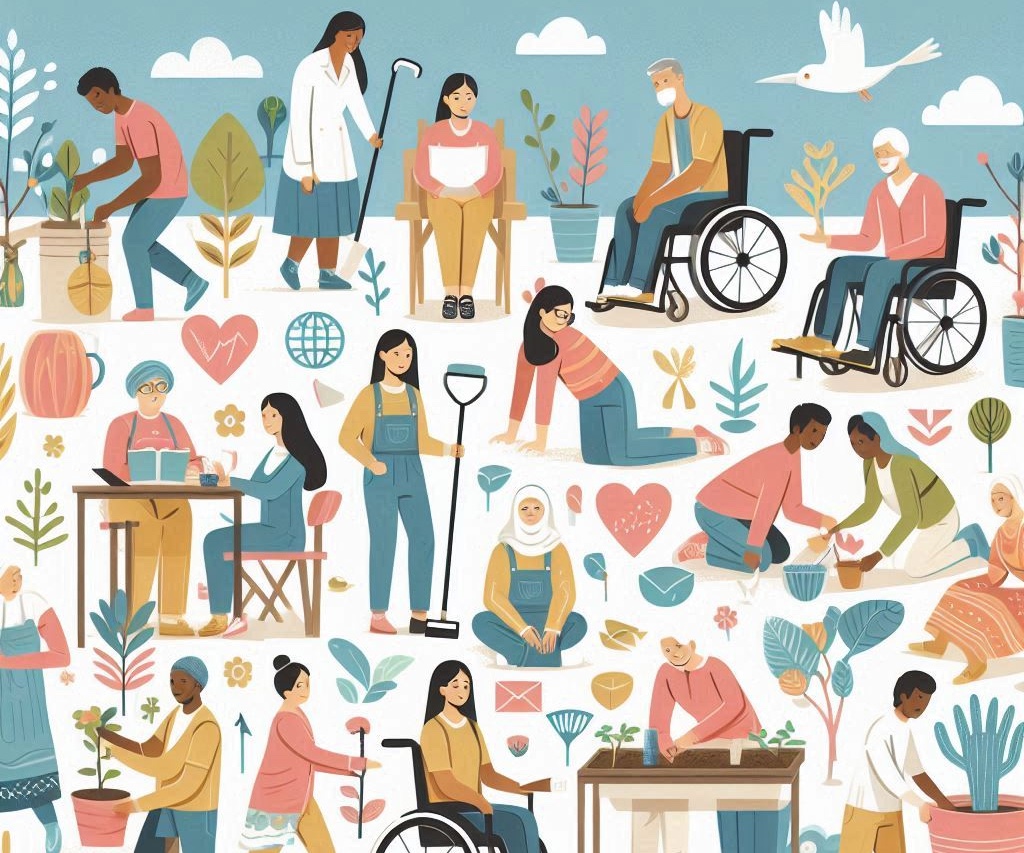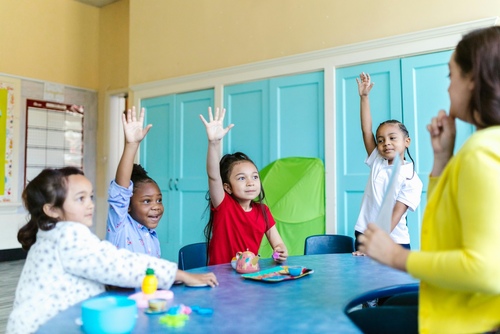This guide highlights 14 practical steps to help organizations create positive experiences for all participants and especially for volunteers who have special needs.
From preparation tips to optimizing local resources, you’ll find insights that make a real difference. Using technology wisely can also ease many challenges.
Join us exploring these strategies that empower individuals while fostering an inclusive atmosphere worldwide.
1. Building Inclusive Training Programs for Volunteers
Crafting inclusive training programs starts with understanding diverse needs. Tailor materials to address various learning styles and abilities. Use interactive methods, such as role-playing or group discussions, to engage everyone.
Provide resources in multiple formats, ensuring accessibility. Regularly review and update the curriculum based on volunteer feedback to keep it relevant and effective for all participants.
2. Local Resource Utilization: Connecting with Community Support
Tapping into local resources can significantly enhance volunteer experiences. Research community organizations that offer support services tailored for individuals with special needs. Foster partnerships with these groups to provide training or mentorship opportunities.
Create a directory of accessible facilities, transportation options, and recreational activities nearby. This network strengthens connections while enriching the volunteering experience and supporting everyone involved.
3. Utilizing Technology to Bridge Gaps in Support
Integrating technology into volunteer programs enhances support for individuals with special needs. For example, you can use an I/DD software to streamline communication and coordination among team members.
This tool enables organizations to track individual progress, share vital information efficiently, and ensure all participants receive appropriate resources. Such innovations create a more inclusive environment while addressing specific challenges volunteers may face abroad.
4. Enhancing Communication: Tools and Techniques
Effective communication is vital in supporting volunteers with special needs. Utilize tools like instant messaging apps, video calls, and visual aids to convey information clearly. Create a culture of openness where questions are encouraged.
Regular check-ins ensure everyone stays informed and engaged. By fostering strong communication channels, you enhance collaboration and make volunteering experiences more enjoyable for all involved.
5. Legal Compliance in Volunteer Organizations: What You Need to Know
Understanding legal compliance is crucial for organizations working with special needs volunteers. Familiarize yourself with local regulations related to accessibility, safety standards, and anti-discrimination laws when volunteering in Africa or other regions.
This knowledge protects both your organization and the volunteers while promoting an inclusive environment that values everyone's rights. Prioritize training on these topics for all staff members involved.
6. Cultural Sensitivity Training for All Participants
Cultural sensitivity training fosters understanding among volunteers from diverse backgrounds. Equip participants with knowledge about local customs, values, and communication styles. Use interactive workshops to encourage discussions on cultural differences and similarities.
This approach builds respect and empathy while creating a harmonious environment. Embracing diversity is a catalyst for enriched teamwork. It crafts an environment where every volunteer knows their value is recognized and celebrated.
7. Harnessing the Power of Mentorship to Elevate Volunteers with Special Needs
When mentorship enters the conversation, its influence on volunteers with special needs cannot be overstated. Pair experienced volunteers or staff members with those who need additional support. This relationship offers guidance, encouragement, and practical assistance throughout the volunteering journey.
Mentors help build confidence by sharing personal experiences and providing tailored advice based on individual challenges. This supportive dynamic fosters growth for both mentors and mentees alike.
8. Creating Accessible Environments: Practical Design Tips
Designing accessible environments is crucial for supporting volunteers with special needs. Ensure pathways are clear, rest areas are available, and facilities meet accessibility standards.
Use signage with large fonts and symbols to assist navigation. Consider the sensory experience of all spaces by minimizing noise and providing quiet zones. These adjustments promote comfort and inclusivity during volunteering in developing countries.
9. Developing Clear Roles and Responsibilities for Everyone
Establishing clear roles boosts confidence among volunteers, especially those with special needs. Outline expectations and responsibilities at the program's start to prevent confusion later on.
Encourage open dialogue about tasks, ensuring everyone understands their contributions. By defining roles clearly, you empower individuals to take ownership of their work while promoting collaboration among team members in a supportive environment.
10. Encouraging Peer Networking Among Volunteers
Fostering peer networking among volunteers creates a supportive community. Organize team-building activities that promote bonding and communication. Encourage participants to share experiences, challenges, and successes in informal settings.
By cultivating relationships, you help individuals feel connected and understood. This network not only enhances morale but also provides a valuable support system during challenging moments in the volunteering experience.
11. Understanding Individual Needs Through Personal Assessments
Personal assessments stand as a cornerstone for organizations to decode the distinct requirements of their volunteers with special needs. Engaging in questionnaires or interviews unlocks valuable data about individual talents and zones ripe for development.
Strategically crafting support mechanisms from these revelations is key to forging individualized experiences that bolster both participation and engagement. Such attention to detail fosters a sense of belonging while ensuring everyone thrives within their roles.
12. Managing Stress and Mental Well-Being During Volunteering
Addressing mental well-being is vital for volunteers with special needs. Foster a culture where self-care takes center stage. Introduce workshops that teach stress-mitigation tactics, encompassing breathing routines or yoga practices.
Propel the formation of peer support circles, a space for individuals to express their emotions without reservation. Regular check-ins help identify any challenges early on, ensuring every participant feels supported and valued throughout their volunteering experience.
13. Evaluating Program Effectiveness with Feedback Loops
Regularly evaluating program effectiveness enhances the volunteer experience for everyone involved. Create anonymous feedback channels where participants can share their thoughts without hesitation.
Schedule periodic reviews to analyze this data alongside staff observations to gain a comprehensive view of strengths and weaknesses in the program. Embracing continuous improvement based on real input fosters an inclusive atmosphere that adapts to volunteers' evolving needs.
14. Celebrating Diversity: Embracing Unique Perspectives
Recognizing and appreciating the diversity of volunteers enhances team dynamics. Explore various ways to appreciate volunteers, such as personalized thank-you notes or acknowledgment during group meetings.
Organize events that highlight different cultural backgrounds and talents within the team. This recognition fosters a sense of belonging and motivates individuals to contribute their unique perspectives, enriching the overall volunteering experience for everyone involved.
Empowering Every Volunteer: A Path Forward
By implementing these strategies, organizations create a supportive environment for all volunteers. Prioritizing inclusivity and understanding leads to richer experiences for everyone involved.
Let’s commit to empowering every individual, embracing their unique contributions, and fostering connections that make volunteering a transformative journey for all participants.








